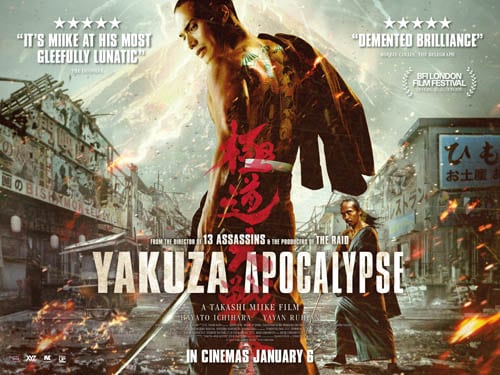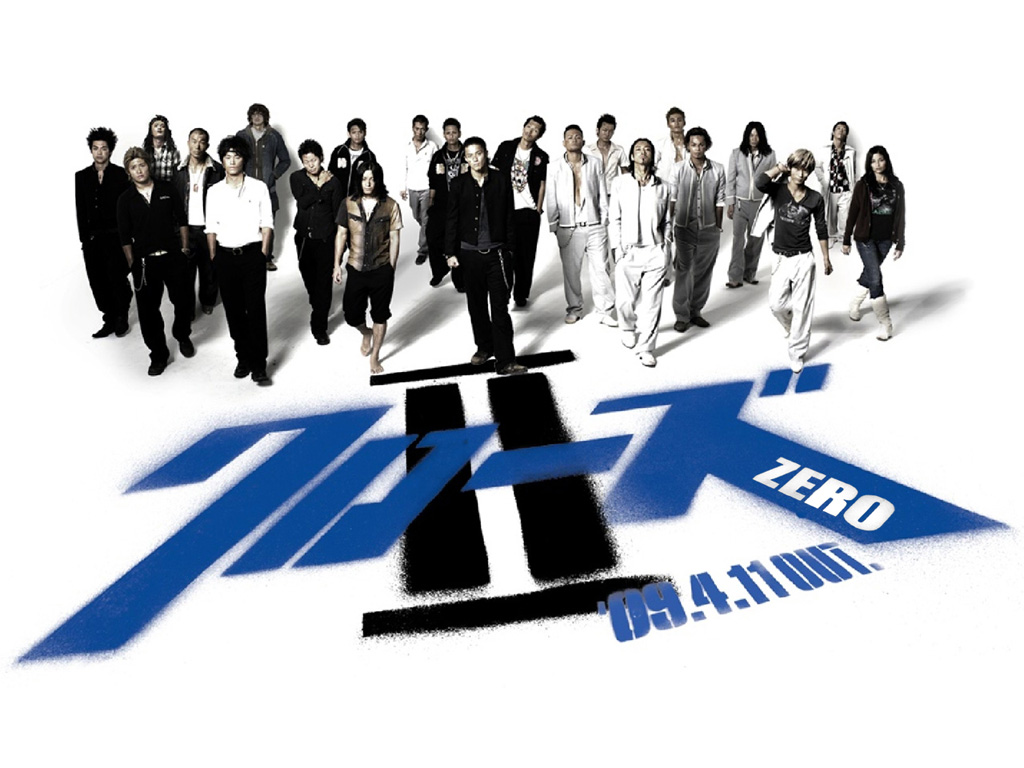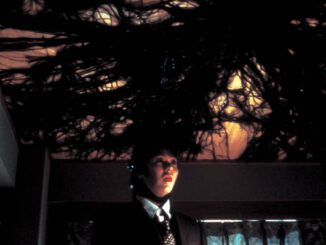
To celebrate the upcoming theatrical release of Yakuza Apocalypse, in UK cinemas on 6th January 2016, we take a look at director Takashi Miike’s Top 5 Films.
Graveyard of Honor (2002)
Perhaps the most tragic and serious portrayal of Yakuza destruction to eke its way into Takashi Miike’s relentlessly violent back catalogue. Graveyard of Honor surprised many of Miike’s keenest viewers by delving a little deeper into the chaos and destruction that is synonymous with the Takashi Miike label. When Ishimatsu (Kishitani Goro) saves the life of a Yakuza boss he is inserted into the upper ranks and soon becomes a fearless and uncontrollable thug, deluded by power and spiralling toward self-destruction.
Ichi the Killer (2001)
Ichi the Killer is perhaps Takashi Miike’s most outlandish movie. Featuring a relentless show of gratuitous and strangely comical violence Miike’s protagonist Kakihara sets out on a path of unbridled Yakuza enforcement. With Yakuza gang members turning away in revulsion Kakihara becomes too gruesome even for them and he is only matched by the eponymous and equally disturbed, Ichi. Based on the manga series of the same name Takashi Miike brings Ichi the Killer to the screen with every care taken to faithfully adapt the original source for the big screen.
13 Assassins (2010)
A band of 13 samurai seek to end the injustice of Lord Naritsugu’s barbaric hold over the land. Set during the closing stages of the Edo period Takashi Miike does a great job portraying the harsh barbarism of the warring Shogun. Likened to Akira Kurosawa’s samurai epic, Seven Samurai, 13 Assassins finds itself in good company regarding a certain explosive and inventive closing act. Largely considered Miike’s most notable work it may differ somewhat in tone from Yakuza Apocalypse but it serves as a fine example of the capabilities of this cult director.
Sun Scarred (2006)
Lost amongst Takashi Miike’s more notable work Sun Scarred thrives under the guise of a well-kept secret. Dealing with a more personal and intimate portrait of gang violence Takashi Miike instils his protagonist-cum-anti-hero with a sense of distinguished vigilantism that isn’t afraid to play on controversies. After intervening in the beating of homeless man at the hands of a teenage gang Katayama soon finds himself on the wrong side of public approval after his daughter is caught up in the madness and Katayama is blamed for innocent involvement. Enacting revenge on the gang leader Katayama turns from white collar worker to vengeful antihero in one of Takashi Miike’s more memorable character transformations.
Audition (1999)
Takashi Miike spins an inventive horror out of an otherwise uncharacteristic Japanese rom-com. As mysterious and intense as the title implies Audition leads viewers into a prolific aversion of typical horror conventions and vies for, and achieves, a more potent and uneasy result. Lauded for its innovative plot and intricate haunting sequences between man and woman Audition is unlike any horror film you’ve seen before and it proves Miike’s unerring versatility once more. As Aoyama struggles with the loss of his wife and the prospect of finding a new one Asami enters his life in a most peculiar manner and soon all is not all it seems.
Pre-book tickets to Yakuza Apocalypse here





Be the first to comment